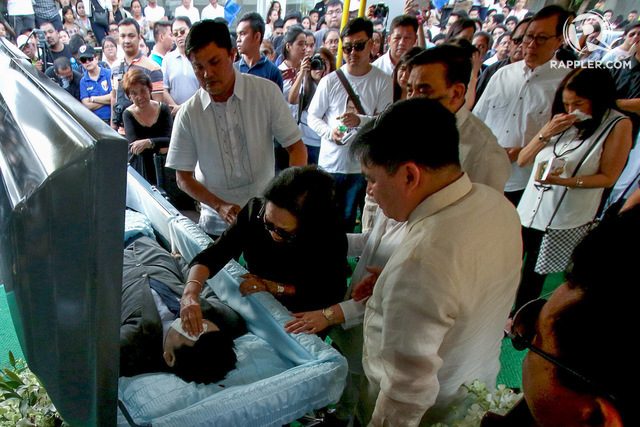SUMMARY
This is AI generated summarization, which may have errors. For context, always refer to the full article.


MANILA, Philippines – President Rodrigo Duterte signed into law the Anti-Hazing Act of 2018 or Republic Act No. 11053, completely prohibiting hazing and imposing harsher penalties on organizers and participants of hazing.
The law is an amendment of the Anti-Hazing Act of 1995 or Republic Act No. 8049 which prohibited hazing only when there is no prior written notice to school authorities or the organization head.
Its Section 3 explicitly bans hazing.
“All forms of hazing shall be prohibited in fraternities, sororities, and organizations in schools, including citizens’ military training and citizens’ army training,” it reads.
The prohibition covers even non-school-based fraternities, sororities, and organizations. (READ: Death and brotherhood)
Organizations that wish to hold initiation rites, even if they don’t involve hazing, must apply with school authorities in order to conduct them.
A written application must be submitted to school authorities at most 7 days before the rites take place. It must contain the place and date of the initiation rites, the names of those to be initiated, and how the initiation rites will go.
Schools are ordered to craft guidelines on approving or denying the conduct of initiation rites within 60 days after the law’s approval.
Two representatives of the school must be present during the initiation rites to ensure no hazing takes place. (READ: What’s happening to hazing cases in the Philippines?)
The new law also introduces fines as part of the penalties for those responsible for hazing.
If the hazing results in death, rape, sodomy, or mutilation, those who planned and participated in the hazing will suffer the penalty of reclusion perpetua and a P3-million fine.
Hazing that does not result in these harms would mean the penalty of reclusion perpetua and a P2-million fine for those who planned and joined the hazing (including alumni and non-resident members and those intoxicated during the hazing), officers of the organization, and its adviser.
Those guilty of hazing are also not protected by any waiver and consent form signed by the neophyte or recruit. “Any form of approval, consent or agreement, whether written or otherwise” waiving any right to object to an initiation rite that involves hazing is “void and without any binding effect on the parties.”
The signing of the Anti-Hazing Act comes almost a year after the death by hazing of Horacio “Atio” Castillo III. On September 17, 2017, Castillo was punched and paddled for 4 hours until he fell unconscious and died.
Senator Panfilo Lacson hopes that with the new law, there would be no repeat of Castillo’s death.
“Let his death serve the purpose of ensuring that the misery of hazing and the employment of appalling rituals will no longer be imposed in the name of brotherhood,” Lacson said in a statement. – Rappler.com
Add a comment
How does this make you feel?
There are no comments yet. Add your comment to start the conversation.